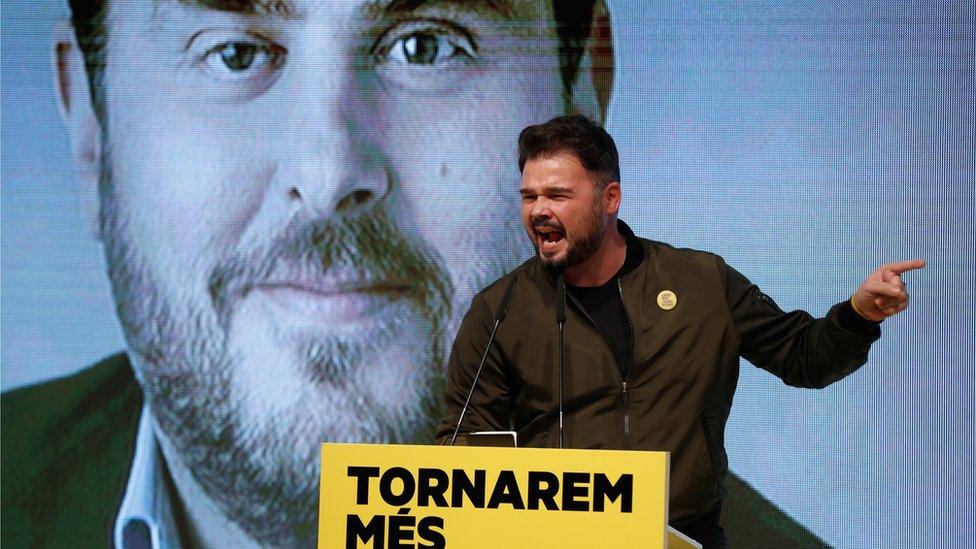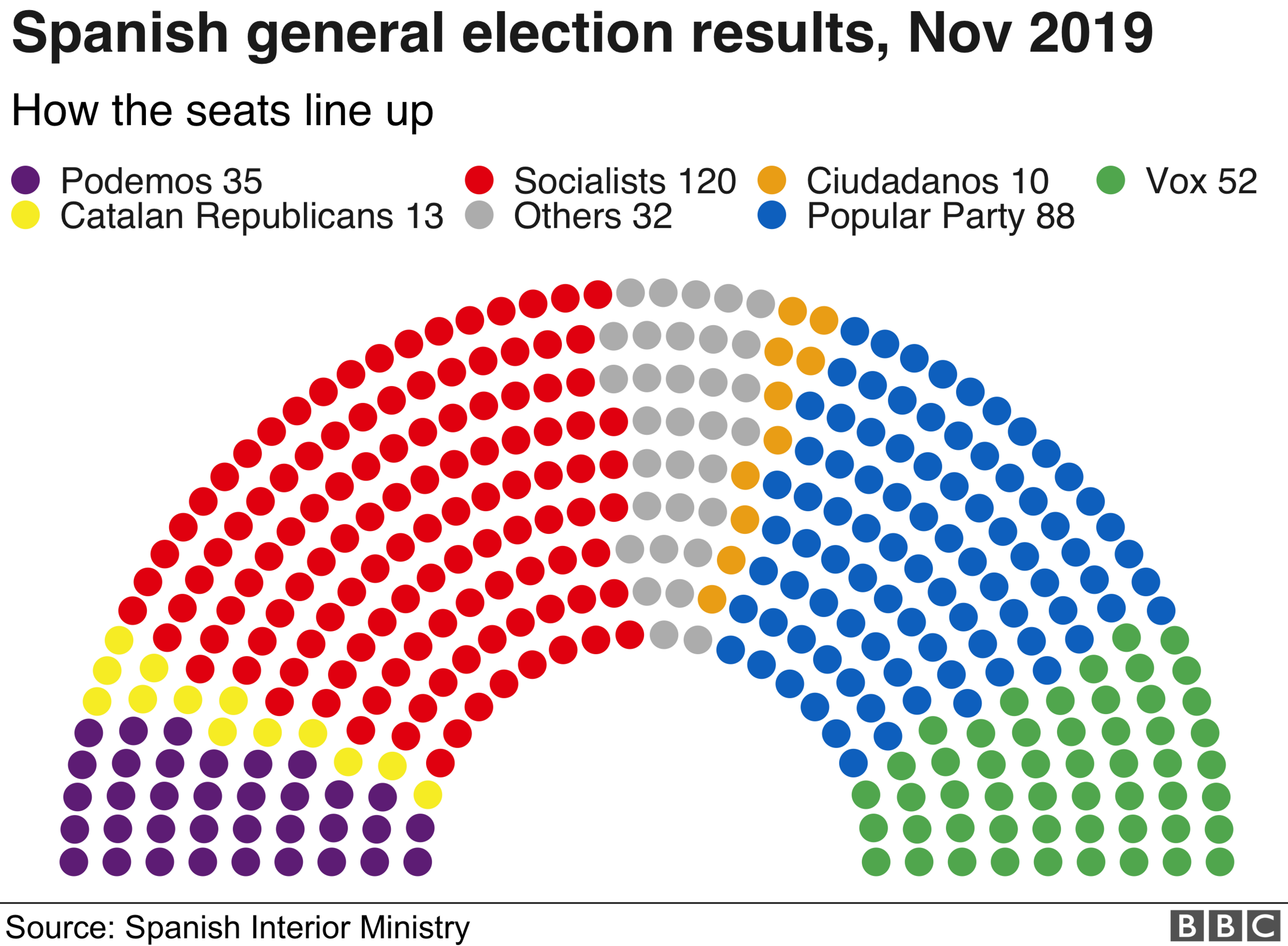Spain election: Catalan party moves to back coalition in return for talks
- Published

ERC candidates like Gabriel Rufian campaigned under images of jailed leader Oriol Junqueras
The biggest separatist party in Spain's Catalonia region has voted to support a new Spanish government in return for talks on independence.
About 95% of members of the Esquerra Republicana de Catalunya (ERC), a social democratic party, backed the move in a ballot.
The ERC could now become kingmaker to the Socialists who failed to win a majority in this month's election.
The Socialists are building a coalition with anti-capitalist party Podemos.
But their combined tally of seats, 155, is still short of the 176 required to form a parliamentary majority.


With the ERC's 13 seats and a possible combination of support from other leftist or Basque parties, acting Prime Minister Pedro Sánchez could continue in office at the head of a coalition.
However, his Socialists have firmly opposed granting Catalans a legal independence referendum, while recognising that both Catalonia and the Basque Country are nations within Spain, and not just regions.
Who are the ERC?
The Republican Left of Catalonia (as their name translates from Catalan) is the region's oldest separatist party.
Its president, Oriol Junqueras, is one of the separatist leaders jailed by Spain in October for sedition, over their part in the illegal independence referendum of 2017.
In Catalonia, the ERC won three seats more than its centre-right separatist rival, Junts per Catalunya (Together for Catalonia), the party of former Catalan President Carles Puigdemont.
In the party ballot, members were asked to vote on whether they agreed to "reject Pedro Sánchez's investiture unless there is previously an agreement to tackle the political conflict with the state at a negotiating table".
The party is now beginning talks with the Socialists, external to discuss their support for Mr Sánchez, Catalan News reports.
It has a list of conditions for reaching an agreement which include holding talks without limits, including talks on an independence vote and an amnesty for the jailed leaders.
"If [the Socialists] want something from us they have to make a move," said ERC official Marta Vilalta, as quoted by Reuters news agency. "If they don't we will obviously maintain our no [vote]."
What is at stake?
Earlier this month, Spain held its fourth election in four years, the second this year, and the new parliament emerged more fractured than ever, with the Socialists losing seats and the far right more than doubling theirs.
Bel, student, 20: 'We are living demonstrations'
The country is facing an uncertain economic outlook, with slowing growth and unemployment that is the second-highest in the EU, despite having come down from earlier highs.
Massive street protests have periodically erupted in Catalonia since the separatist leaders were jailed, with hundreds of people injured in rioting.
Earlier this month, in defiance of a warning by Spain's Constitutional Court, the Catalan parliament approved a non-binding motion expressing the wish to exercise self-determination "to respect the will of the Catalan people".
However, support for independence appears to have waned. According to a survey for the regional government's official CEO research centre published this month, 48.8% oppose independence compared with 41.9% in favour.